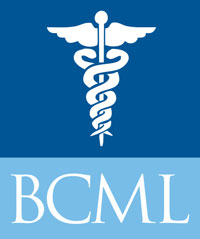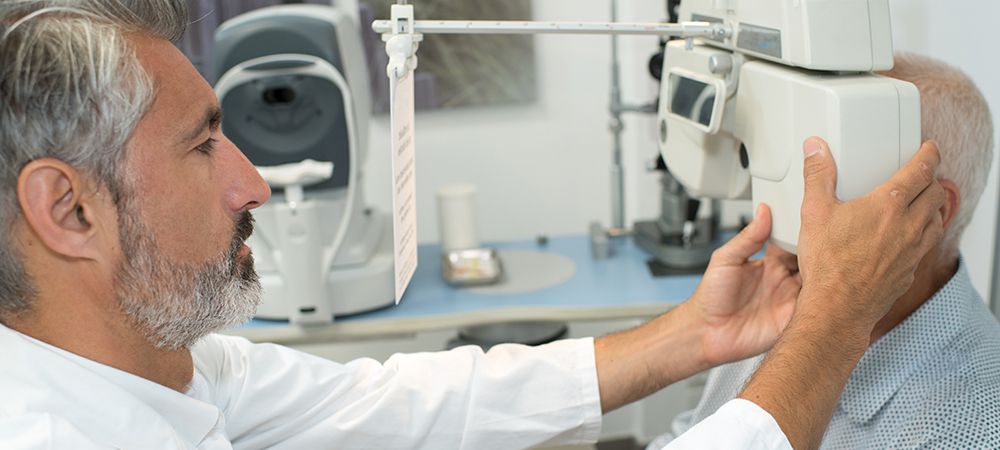Have you seen an eye care professional in the last year? Recent data shows that only about half of all Canadians between the ages of 40 and 64 have had their eyes checked professionally in the past year. Regular eye exams can help to find vision concerns before they become major problems and help you get the proper eyewear you need to see your best.
However, unlike an optometrist who provides primary eye care services like a routine exam, an ophthalmologist is trained in advanced eye care and surgical options. Here we will look at when you should see an ophthalmologist and why regular eye care is good for your total health.
Signs that You Should See an Opthamologist
Canadians’ eye care requirements change throughout life. Typically, if you do not have a vision problem, those under the age of 40 should aim for just one exam every 10 years. Those who are 41 to 55 should receive an exam every 5 years. From 56 to 65, once every three is recommended. Finally, those over 65 should get their eyes checked every two years.
These are general guidelines and they may change depending on your doctor’s recommendation. You may need more or less frequent examinations. If you experience any of the following, you should make an ophthalmologist appointment as soon as possible:
- Vision Loss: Complete or partial vision loss in one or both eyes is cause for immediate concern and an appointment.
- Blurriness, Streaks or Spots: It is not uncommon to experience small black spots or wavy streaks in your vision on occasion and for brief moments. These can occur for several reasons and are rarely a concern unless they do not go away. However, if your vision gets blurry, you have double vision or streaks of light without explanation, this is cause for concern. Be aware of a sudden increase of the presence in any of these elements as they can indicate a detached retina.
- Compromised Central or Peripheral Vision: If you notice shadows or a curtain-like effect of darkness over you vision, this can indicate a serious medical concern including issues with your brain
- Visible Changes to the Eye: Any kind of discharge, swelling or redness can be problematic as these can indicate an infection.
- Sudden Crossed Vision or inability to focus your eyes is another concern that requires immediate medical examination.
- Changes in Colour Perception: If the way you see colours suddenly changes, this can indicate important changes in your eye health for example. This can mean a loss of all or most colour perception or possibly an inverse of colours.
When Not to See an Opthamologist
While opthamologists provide the broadest range of services, some situations are best handled by an optometrist or optician. An optometrist will typically be the best choice for a routine eye exam. They will be able to diagnose your condition and provide treatment options with the exception of surgical solutions.
However, if you simply need new glasses, an optician may be best. Opticians are trained to help you find eyewear that is comfortable and suits your taste. Optician offices are also usually combined with a retail area where you can choose your glasses.
Who is at Elevated Risk of Eye Problems?
Age, certain diseases, ethnicity, and other health conditions can all increase your risk of vision concerns. If any of the following apply to you, you may require more frequent exams.
- Health Conditions: autoimmune diseases, diabetes, and thyroid disease all increase instances of eye problems.
- Genetic Predisposition. Those who have family members with certain eye conditions such as glaucoma may be at an elevated risk as well.
- Ethnicity: Those of African and Hispanic dissent experience higher instances of certain eye conditions.
- Medications: Some medications may increase your risk of certain eye problems. Whenever starting a new medication, consult with your doctor regarding the risks and what you can do to prevent eye damage.
How Can Eye Exams Help Your Total Health?
Early Disease Detection: Early intervention for eye health concerns can help save your vision and potentially even find other diseases. Your eyes can reveal signs of diseases ranging from diabetes, high cholesterol and high blood pressure to some cancers and even multiple sclerosis. Most of these diseases will require additional testing, but the eyes can often reveal these problems even when you are not experiencing other symptoms.
Preventative Care Guidance: Your ophthalmologist can provide guidance on how to care for your eyes better. Changes in exercise, diet and lifestyle can prevent and slow the effects of certain eye diseases.
Detection of Rare and Immediate Health Risks: While “floaters” and spots in your vision may occur on occasion with little concern, an increase in their number combined with flashes of light and other vision impairment can indicate much more serious problems. Retinal detachment is a common cause of this type of vision change. The separation of the retina from the eye is an emergency situation that requires immediate action to prevent vision loss. Additionally, double vision and certain other vision issues can indicate problems within the brain.
Are Eye Exams Free in Canada?
The Ontario Health Insurance Plan provides a free, yearly eye exam for citizens under 19 and over 65. These routine exams are typically performed by an optometrist. Exams that are deemed medically necessary are covered for citizens of all ages.
These exams are conducted by an ophthalmologist who is trained to treat more serious eye concerns and provide surgical solutions. If you should receive a diagnosis requiring additional medical care, many services are covered by OHIP and may include help with paying for prescription glasses.
Scheduling an Appointment with an Opthamologist
If you are experiencing any of the above vision changes or conditions, a visit to an ophthalmologist can provide answers and peace of mind. While any changes to vision can feel extremely concerning, many issues have simple fixes and ways to prevent further damage.
Are you ready to maintain or improve your vision? BCML is here to help. Our eye care team provides a wide range of services to diagnose and treat both common and advanced eye conditions. To make an appointment, please contact us at (416) 929-1900.


